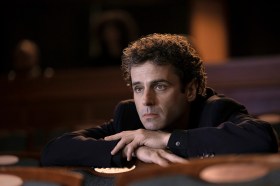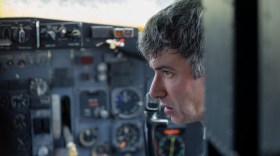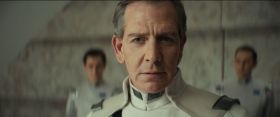Tim Winton’s The Turning can be secure in its claim as the most ambitious film project the Australian industry has ever seen. One anthology of short stories paves the way for 17 short films by the same number of directors, plus an animated bookend enlivening the book’s T.S. Eliot preface. Each segment is constructed with its own cast and crew, in unique styles, informed by diverse backgrounds. Under the guidance of creator, curator and producer Robert Connolly (Underground: The Julian Assange Story), the finished compilation spans 180 minutes.
The content, too, earns the same aspirational label, telling a tale in and around a small-town Western Australian locale over the course of generations. Characters are shared between stories, and slices of their lives presented at varying stages. Themes recur, contemplating cause and effect, past and present, what has been done and what will come with an obsessive, spirituality-infused fervour. An interwoven tapestry is teased into shape, spreading singular and collective stories, both one by one and as an interlocking whole. Faces familiar and less so flit into focus, with the troubled Lang family – son Vic, his wife Gail, and parents Carol and Bob – and estranged brothers Frank and Max closest to becoming the film’s central characters
Thus builds a layered portrait, scene by scene, that is as ensconced in mood and memory as it is in narrative. Each section adds to the preceding material, favouring the cumulative rather than distinctive approach; while marked by the difference rotating talent undeniably brings, the sum of the parts matters as much as the individual elements. Though this aim is shared by all portmanteau efforts, rarely is it so assuredly achieved. That the production proudly boasts of the creative insularity of its portions, as evidenced in the wavering attitudes and execution, only makes its cohesion as a whole all the more impressive.
Of course, considered separately, some sections prove more successful than others, and not always those with the highest-profile names working in front of or behind the camera. Youthful performers often monopolise attention in a way their older counterparts can only attempt; inexperienced helmers, bringing studies and practises from other artistic disciplines, find another way to convey familiar concepts. The directing debuts of actors Mia Wasikowska (Stoker) and David Wenham (TV’s Top of the Lake) result in evocative, immersive additions. The segment featuring Cate Blanchett (Blue Jasmine) and Richard Roxburgh (Sanctum) plays to type; conversely, Rose Byrne’s (The Internship) bruised, blistering turn in the titular centrepiece sequence is easily her – and the film’s – best work.
At the conclusion of the feature’s three hours, as presented with an interval in its limited theatrical season, a bigger picture has been assembled – one compelling in its scope and endeavour. Although an appreciation for the film’s intent and labours can’t mask its lesser moments, equally, slighter sections can’t detract from the combined experience. For a project of this size and scale, it is sheer determination that truly triumphs; that the film that follows commands attention as it fulfils its aims with aplomb is an undoubted accomplishment.
Rating: 3 ½ stars out of 5Tim Winton’s The Turning
Australia, 2013, 180 mins
Directors:
Ash Wednesday: Marieka Walsh
Big World: Warwick Thornton
Abbreviation: Jub Clerc
Aquifer: Robert Connolly
Damaged Goods: Anthony Lucas
Small Mercies: Rhys Graham
On Her Knees: Ashlee Page
Cockleshell: Tony Ayres
The Turning: Claire McCarthy
Sand: Stephen Page
Family: Shaun Gladwell
Long, Clear View: Mia Wasikowska
Reunion: Simon Stone
Commission: David Wenham
Fog: Jonathan auf der Heide
Boner McPharlin’s Moll: Justin Kurzel
Immunity: Yaron Lifschitz
Defender: Ian Meadows
Release date: 26 September
Distributor: Madman
Rated: MA
Actors:
Director:
Format:
Country:
Release:





